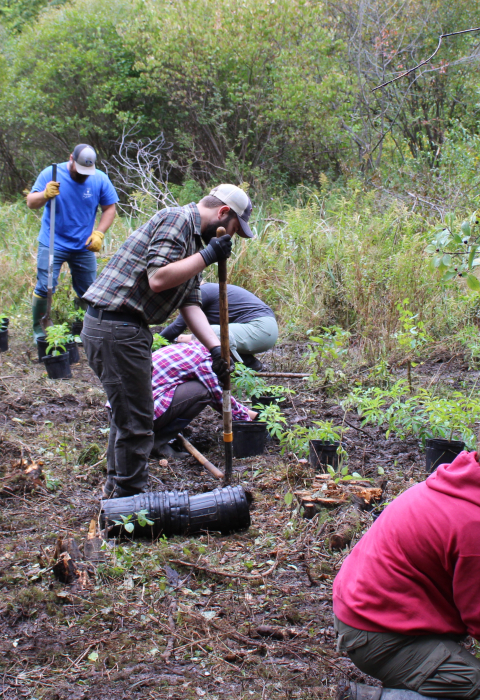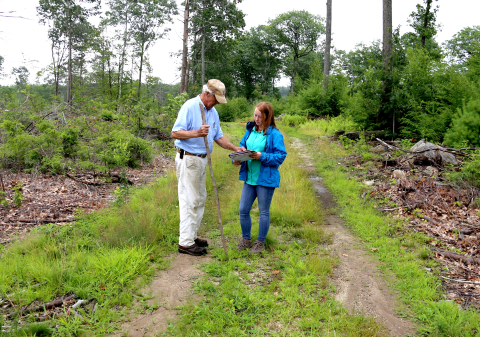Making Early Successional Habitat in the Right Places
Partners in the Young Forest Initiative include federal and state natural resource agencies, land trusts, conservation organizations, towns and counties, universities, timber products companies, and private landowners.
Partners share knowledge gained from research into how different animals use different habitats. They also actively make and renew young forest and shrubland – thick, short-lived early successional habitats that many kinds of wildlife need.
Using science-based land management techniques, partners create the right amount of young forest in the right places to ensure healthy populations of mammals, birds, reptiles and amphibians, and pollinators.
When an area, state, or region has enough young trees and native shrubs, landowners use their properties in sound and economically viable ways, working forests thrive, and forest health and diversity get a boost.
Funding
The Young Forest Initiative uses a variety of grant programs to protect, restore, and enhance young forest and shrubland to benefit wildlife, people, and northeastern woodlands now and in the future.
Want to Make Some Habitat?
Learn about opportunities to make young forest and shrubland from the contacts below. Many states have private lands habitat specialists who can provide free advice on potential projects.
Full or partial funding may be available.
State Agencies
Connecticut Department of Energy & Environmental Protection
Delaware Division of Fish and Wildlife
Maine Department of Inland Fisheries and Wildlife
Maryland Department of Natural Resources
Massachusetts Division of Fisheries and Wildlife
New Hampshire Fish and Game Department
New York State Department of Environmental Conservation
Rhode Island Department of Environmental Management
Vermont Agency of Natural Resources
Virginia Department of Wildlife Resources
West Virginia Division of Natural Resources
Federal Agencies
U.S. Fish and Wildlife Service Partners for Fish and Wildlife Program
USDA Natural Resources Conservation Service Environmental Quality Incentives Program, Working Lands for Wildlife Program, and Conservation Stewardship Program
Find your local NRCS service center.


